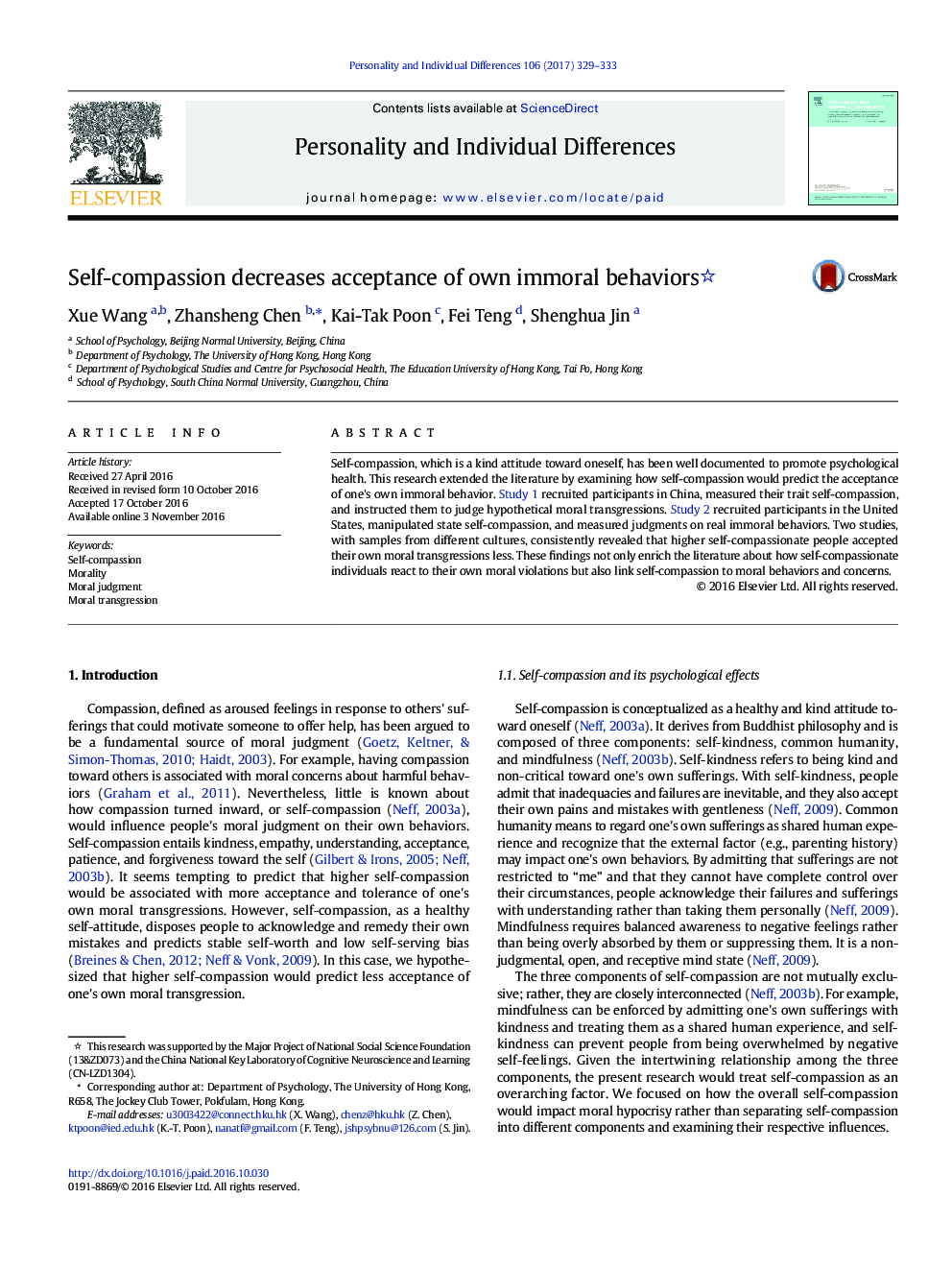| Article ID | Journal | Published Year | Pages | File Type |
|---|---|---|---|---|
| 5036221 | Personality and Individual Differences | 2017 | 5 Pages |
â¢Two studies explored how self-compassion predicts judgment on own immoral acts.â¢Self-compassion was measured in Study 1 and manipulated in Study 2.â¢Study 1 used hypothetical immoral acts, and Study 2 used real immoral acts.â¢It was found that self-compassion predicted less acceptance of own immoral acts.
Self-compassion, which is a kind attitude toward oneself, has been well documented to promote psychological health. This research extended the literature by examining how self-compassion would predict the acceptance of one's own immoral behavior. Study 1 recruited participants in China, measured their trait self-compassion, and instructed them to judge hypothetical moral transgressions. Study 2 recruited participants in the United States, manipulated state self-compassion, and measured judgments on real immoral behaviors. Two studies, with samples from different cultures, consistently revealed that higher self-compassionate people accepted their own moral transgressions less. These findings not only enrich the literature about how self-compassionate individuals react to their own moral violations but also link self-compassion to moral behaviors and concerns.
